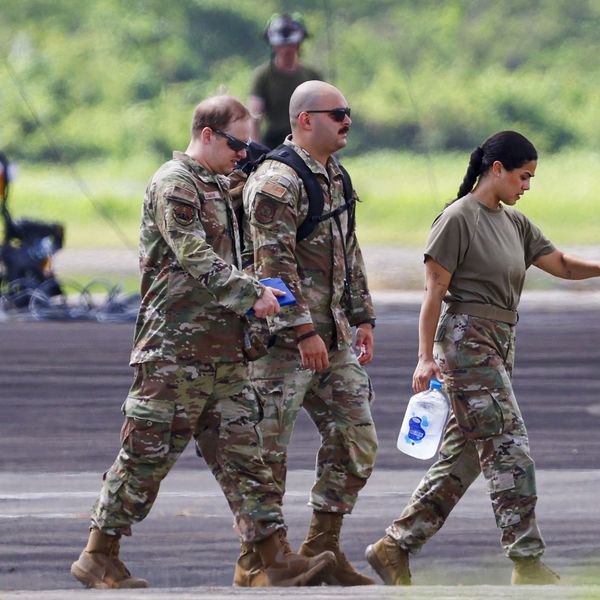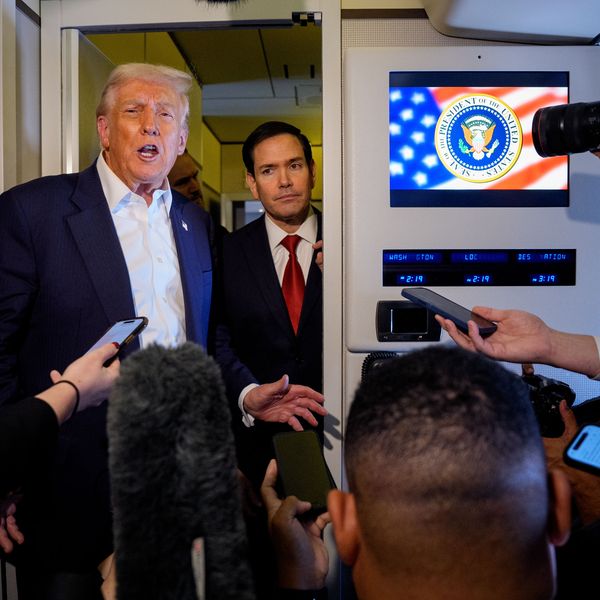"Yankees go home."
Those were the words spoken in English by Venezuelan President Nicolas Maduro in a live TV appearance Monday, in which he ordered top U.S. diplomats "out of Venezuela," giving them 48 hours to leave on charges of conspiring with far-right domestic forces to sabotage the country's economy and power systems.
Maduro declared, "We detected a group of U.S. embassy officials dedicated to meeting the far-right and to financing and encouraging acts of sabotage against the electrical system and Venezuela's economy." While the details of these charges are not yet clear, the president said he has evidence that U.S. officials had met with opposition forces in the southwest state of Bolivar.
Marduro announced the expulsion of top embassy official Kelly Keiderling, consular officer David Moo, and embassy political staffer Elizabeth Hoffman. The US embassy soon after released a statement declaring, "We completely reject the Venezuelan government's allegations of US government involvement in any type of conspiracy to destabilize the Venezuela government."
The U.S. and Venezuela have been without official ambassadors since 2010, when the late Hugo Chavez refused to grant a visa to Larry Palmer, who was appointed as US ambassador to Caracas, on the grounds he had made false claims about links between the Venezuelan government and Colombian FARC rebels. "Anyone who comes here as an ambassador has to show respect. This is a country that must be respected," Chavez had declared. The US government then expelled the Venezuelan ambassador in retaliation.
Maduro, who served as Chavez's foreign minister and vice president, took over as interim president when Chavez fell terminally ill. Marduro was elected president in April in an election the US refuses to recognize.
The US government, which fiercely opposed the Venezuelan government under Chavez, has been tied to a 2002 attempted coup against then-president Hugo Chavez.


